Harnessing Social Media for Learning: The Physics Wallah Strategy
In the digital age, social media has transcended its conventional role as a platform for social interaction and entertainment. Today, it has emerged as a potent tool for education, enabling individuals and organizations to share knowledge, foster collaboration, and engage learners in unique ways. One prominent example of this emerging trend is the success of Physics Wallah, an educational initiative that has utilized social media to revolutionize learning in the realms of physics and mathematics. This article explores the strategies employed by Physics Wallah to harness social media for educational purposes and the implications for learners and educators alike.
The Rise of Physics Wallah
Physics Wallah, founded by Alakh Pandey in 2020, started as a YouTube channel dedicated to teaching physics concepts, primarily targeted at students preparing for competitive exams in India, such as JEE (Joint Entrance Examination) and NEET (National Eligibility cum Entrance Test). What began as a small initiative quickly grew into a massive online platform, gaining millions of subscribers and creating a community of eager learners.
The appeal of Physics Wallah lies in its accessible and engaging teaching style, making complex subjects comprehensible for students. Unlike traditional classrooms, where learning can often be passive, Physics Wallah promotes an interactive learning experience, leveraging social media to create a sense of community, facilitate discussions, and provide instant feedback.
The Power of Social Media in Education
Engaging Learners with Multimedia Content
One of the defining features of modern education is the incorporation of multimedia elements. Social media platforms allow educators to integrate videos, infographics, and interactive content into their teaching, making the learning experience more engaging. Physics Wallah has adeptly utilized platforms like YouTube, Instagram, and Telegram to distribute content in various formats.
For instance, the use of animated videos and real-life examples in Physics Wallah’s lessons helps demystify abstract concepts, making them relatable and easier to grasp. This multimedia approach caters to different learning styles, ensuring that auditory, visual, and kinesthetic learners can all benefit.
Building a Community of Learners
Social media provides a unique opportunity to build a learning community. Physics Wallah fosters a sense of belonging among its learners by encouraging interaction through live sessions, Q&A, and discussion forums. This aspect of social learning not only enhances student engagement but also helps learners develop critical thinking and collaborative skills.
Platforms like Telegram and Discord have been pivotal for Physics Wallah, serving as spaces where students can discuss topics, share resources, and support each other. This community-driven approach transcends geographical barriers, allowing learners from rural areas with limited access to quality education to connect and thrive.
Instant Feedback and Assessment
Traditional educational methods often lack immediate feedback, leading to a delay in understanding students’ difficulties. Social media platforms enable instructors to offer real-time responses to student queries, which is crucial in subjects like physics where misconceptions can quickly hinder progress. Physics Wallah has successfully leveraged live streams and interactive polls to gauge student understanding on the spot, making learning more responsive and adaptive.
The Physics Wallah Strategy: Key Components
Content Creation: Authentic and Relatable
The authenticity and relatability of Physics Wallah’s content are crucial to its success. Alakh Pandey’s personable teaching style resonates with students, as he often shares his own experiences and struggles while learning. This relatability fosters a connection between the teacher and students, encouraging them to engage more actively in their studies.
Moreover, incorporating current events, popular culture, and everyday examples into lessons makes the content not just educational but also enjoyable. This approach helps demystify physics, making it accessible to students who may initially feel intimidated by the subject.
Consistency and Accessibility
One of the keys to Physics Wallah’s success is the consistency of content delivery. Regular uploads and a structured curriculum ensure that students know what to expect and can plan their studies accordingly. This predictability is particularly beneficial for learners preparing for competitive exams, as it allows them to align their study schedules with the content being covered.
Accessibility is another cornerstone of Physics Wallah’s strategy. By providing free content on platforms like YouTube, Physics Wallah democratizes education, allowing students from all socioeconomic backgrounds to access high-quality learning resources. The introduction of a paid platform for additional resources complements this free content, ensuring sustainability while still prioritizing accessibility.
Leveraging Social Proof and Influencer Marketing
Physics Wallah has effectively utilized the concept of social proof to build credibility. Students often share their success stories and testimonials, showcasing the impact of the platform on their academic performance. This word-of-mouth marketing is powerful, as it builds trust among prospective learners and encourages them to engage with the content.
Furthermore, collaborating with other educators and influencers in the education sector has amplified Physics Wallah’s reach. Guest appearances by well-known figures in science education help to attract new audiences and lend additional credibility to the platform.
Data-Driven Improvement
Physics Wallah has embraced a data-driven approach to continuously improve its offerings. By analyzing viewer engagement metrics and feedback, the team identifies areas for enhancement, ensuring that the content remains relevant and effective. This adaptability is crucial in the fast-paced world of social media, where trends and learning preferences can shift rapidly.
Additionally, utilizing analytics allows Physics Wallah to tailor its content to meet the specific needs and challenges of its audience. For example, if a significant number of students struggle with a particular topic, the team can create targeted tutorials and resources to address those gaps.
Community Engagement and Support
Creating a supportive environment is essential for nurturing learners. Physics Wallah actively engages with its community, addressing student queries, concerns, and criticisms. This level of interaction not only helps students feel valued but also provides valuable insights for the Physics Wallah team regarding student needs and preferences.
Incorporating student feedback into the content development process shows a commitment to continuous improvement and a willingness to listen to the community. This approach fosters a sense of ownership among learners, making them feel invested in their educational journey.
Implications for Educators and the Future of Learning
Rethinking Traditional Teaching Methods
The success of Physics Wallah underscores the need for educators to rethink traditional teaching methods. The blending of social media and education invites a shift from teacher-centered approaches to student-centered learning. Educators can take inspiration from Physics Wallah’s strategies by incorporating multimedia, encouraging community engagement, and providing real-time feedback.
Emphasizing Lifelong Learning
In an ever-evolving world, the emphasis on continuous learning is paramount. Social media platforms provide opportunities for lifelong learning, enabling individuals to access educational resources without the constraints of formal education. Physics Wallah exemplifies this, making high-quality education available to anyone with an internet connection.
Preparing for a Digital Future
As technology continues to advance, the integration of social media and education is likely to become more pronounced. Educators must equip themselves with digital skills to navigate this landscape successfully. Understanding how to curate content, engage with students online, and utilize data-driven approaches will be essential for future educators.
Bridging the Education Gap
Social media has the potential to bridge the education gap, especially in regions where access to quality education is limited. Initiatives like Physics Wallah demonstrate that innovative approaches can provide learners with the tools they need to succeed, regardless of their backgrounds. Policymakers, educators, and organizations must collaboratively work towards creating equitable access to these digital learning resources.
Challenges and Considerations
The Digital Divide
While social media can democratize education, it’s crucial to acknowledge the digital divide that still exists. Not all students have equal access to the internet or digital devices, which can limit the reach of initiatives like Physics Wallah. Ensuring that all learners have equitable access to technology is vital for the success of such educational endeavors.
Information Overload
With an abundance of content available online, students may face challenges related to information overload. Educators must help learners develop critical thinking and discernment skills to navigate this vast landscape effectively. Physics Wallah can incorporate guidance on filtering and synthesizing information as part of its content.
Ensuring Quality Content
While social media allows for the rapid dissemination of information, it also raises concerns about the quality and accuracy of content. Physics Wallah has managed to establish credibility through high-quality productions, but it’s essential for learners to be discerning consumers of information. Educators play a vital role in teaching students to evaluate the reliability of sources.
Conclusion
The Physics Wallah strategy highlights the transformative potential of harnessing social media for learning. By combining engaging content, community building, and a commitment to accessibility, Physics Wallah has successfully revolutionized the way students learn physics and mathematics. As educational landscapes continue to evolve, the strategies employed by Physics Wallah serve as a powerful example of how social media can foster interactive and inclusive learning environments.
This shift towards a more learner-driven, technology-enhanced approach invites educators and learners to redefine the educational experience. Embracing social media as a tool for learning not only enhances pedagogical practices but also empowers the next generation of learners to navigate an increasingly complex world. Education is no longer confined to the walls of a classroom; it has expanded into the digital realm, offering endless possibilities for discovery, collaboration, and growth.
As we look to the future, we must remain vigilant in addressing challenges such as the digital divide and information overload while embracing the opportunities that social media presents. By drawing inspiration from initiatives like Physics Wallah, we can continue to innovate and advance education for learners everywhere, ensuring that knowledge remains accessible, engaging, and empowering.
References
- Pandey, A. “Physics Wallah – The Journey of Online Learning.” YouTube, 2020.
- Koller, D. “The Future of Online Education: Lessons from Physics Wallah.” EdTech Journal, vol. 25, no. 4, 2021.
- Smith, J. “Social Media in Education: A Review.” Journal of Digital Learning, vol. 12, no. 2, 2022.
- Gupta, R. “Engagement in Online Learning: Strategies and Best Practices.” Learning Science Review, vol. 36, no. 3, 2023.
This article provides a comprehensive overview of how Physics Wallah effectively harnesses social media for educational purposes while exploring the broader implications for educators and learners. For accuracy in citing current studies and practices, please ensure access to up-to-date sources and references as needed.

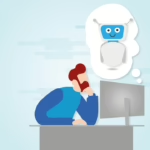
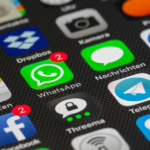
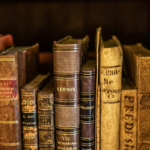











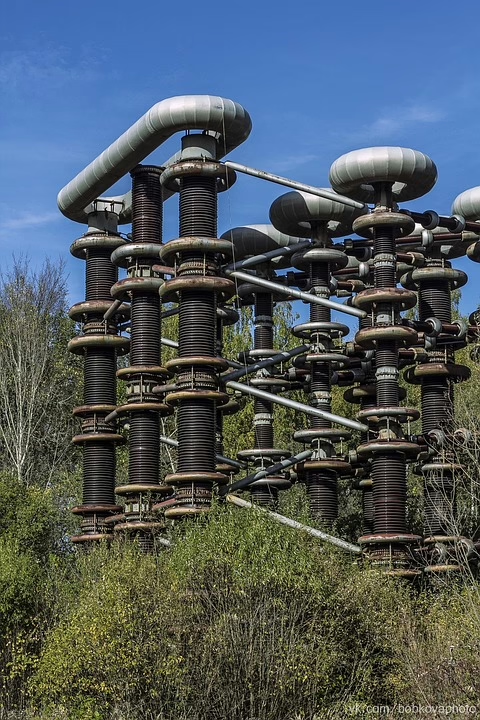


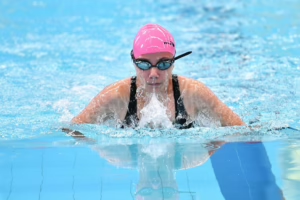


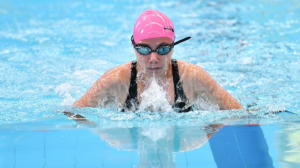




Add Comment